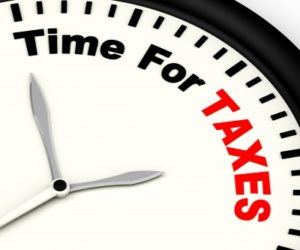Tax Season 2017 -Who’s Doing Your Taxes?

Courtesy of Stuart Miles
Tax season is scam season and the cyber crooks are trying every possible trick to get your money. African-Americans, people of color, senior citizens and immigrants are especially targeted. Why? Because we are not educating ourselves. Tax scams targeting black people in the past included a scheme for slavery reparations. Immigrants are vulnerable because they do not always understand the American tax system and can be easily intimidated with threats of deportation. Seniors are also easily threatened. According to a study by Home Instead Senior Care nearly one in 10 seniors reported being victimized by a phone scam. These scams usually involve someone posing as an IRS official demanding immediate payment of taxes.
Scams, phishing attacks and social engineering are the most common tools used to rip people off. So what can you do? First of all be aware of how the IRS works. Second, be aware of how the crooks work. Simply put, educate yourself. The AACR is here to help
Lets talk about tax preparers. If someone else is doing your taxes there is a a way to find out if this person is legitimate. Check the IRS tax preparer directory. You can search for a tax professional or discover if you are dealing with a crook.
Anyone can claim to be a tax preparer. Only four states have mandated requirements for tax professionals, California, Maryland, New York and Oregon. In all the other states anyone can claim to be a tax preparer and charge for their services. There is no standard or requirement to meet any minimum educational competency or training.
Here are a few tips to spot them.
- All paid tax preparers are required to have a Preparer Tax Identification Number, or PTIN. The only way to get a PTIN is to register with the IRS. And the PTIN should be included on your tax return.
- Don’t ever sign a partially completed tax return! A legitimate tax professional will never ask you to do this regardless of how complicated your return may be.
- Your tax preparer should ask for all documentation of your income. Be suspicious if you are not asked for your W-2 or other documentation of earnings, deductions or credits.
- Don’t ever agree to false documentation or deductions. Remember you are ultimately responsible for what is on you tax return. And fines, penalties and even prison is a definite possibility.
- Your preparation fee should not be based on a percentage of your refund. This may cause a disreputable preparer to inflate deductions or credits.
- Never pay your taxes or penalties to your preparer. These go directly to the IRS. If they don’t get there its on you.
- Avoid any tax preparer who claims to have secret method to lower your tax bill that the IRS doesn’t want you to know about.
- Be alert to all unprofessional behaviors like someone who does taxes from their home or have no set office.
- Provide only copies of your documents. You keep the originals.
- Make sure your preparer is easy to contact and responds promptly.
- If you spot any of these red flags report the preparer to the IRS using Form 14157. Also file a complaint at Fraud.org.
Tax season is scam season. Educate yourself to the scam, traps and tricks!






